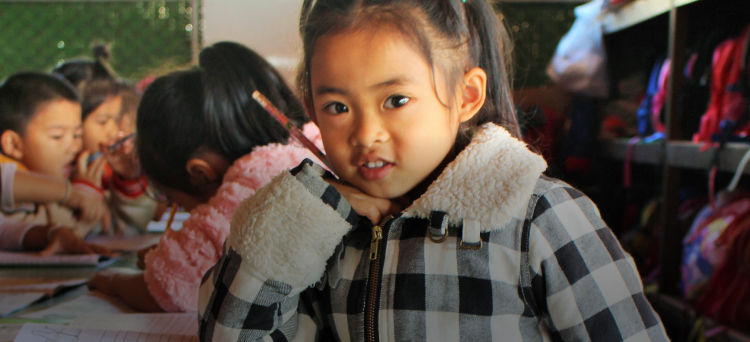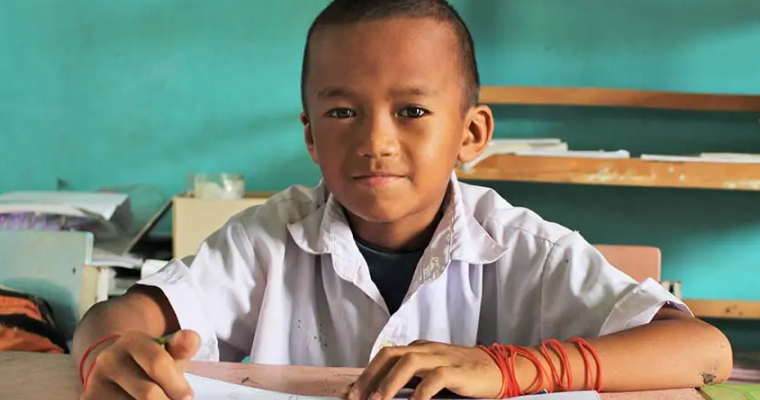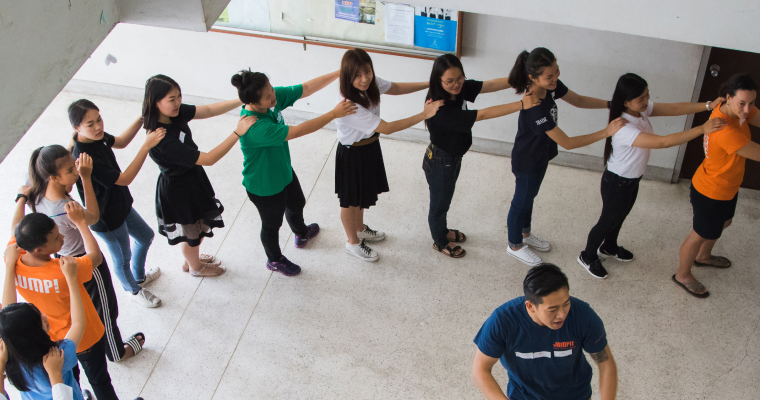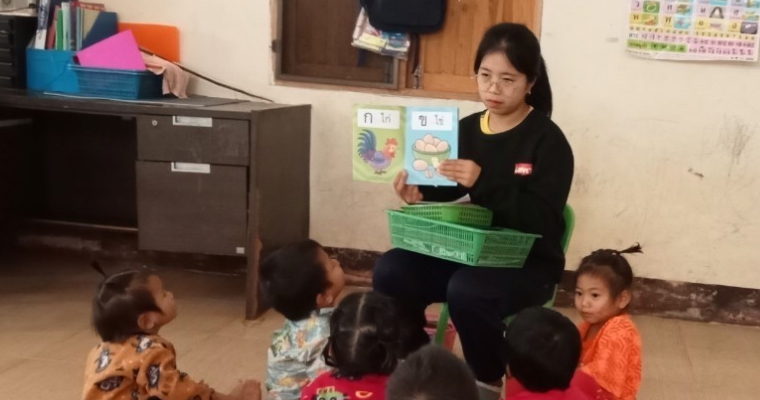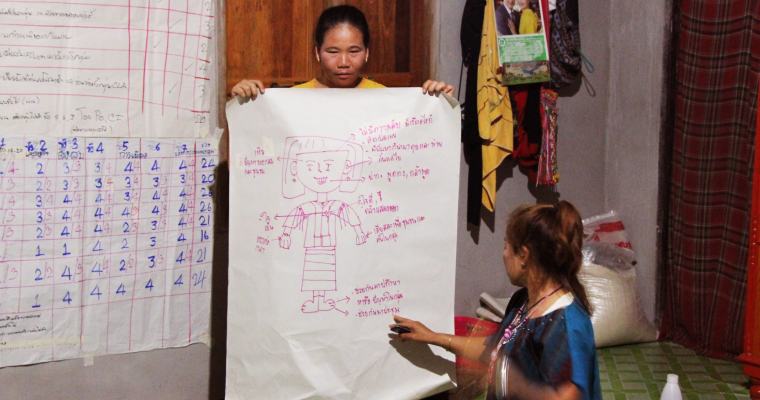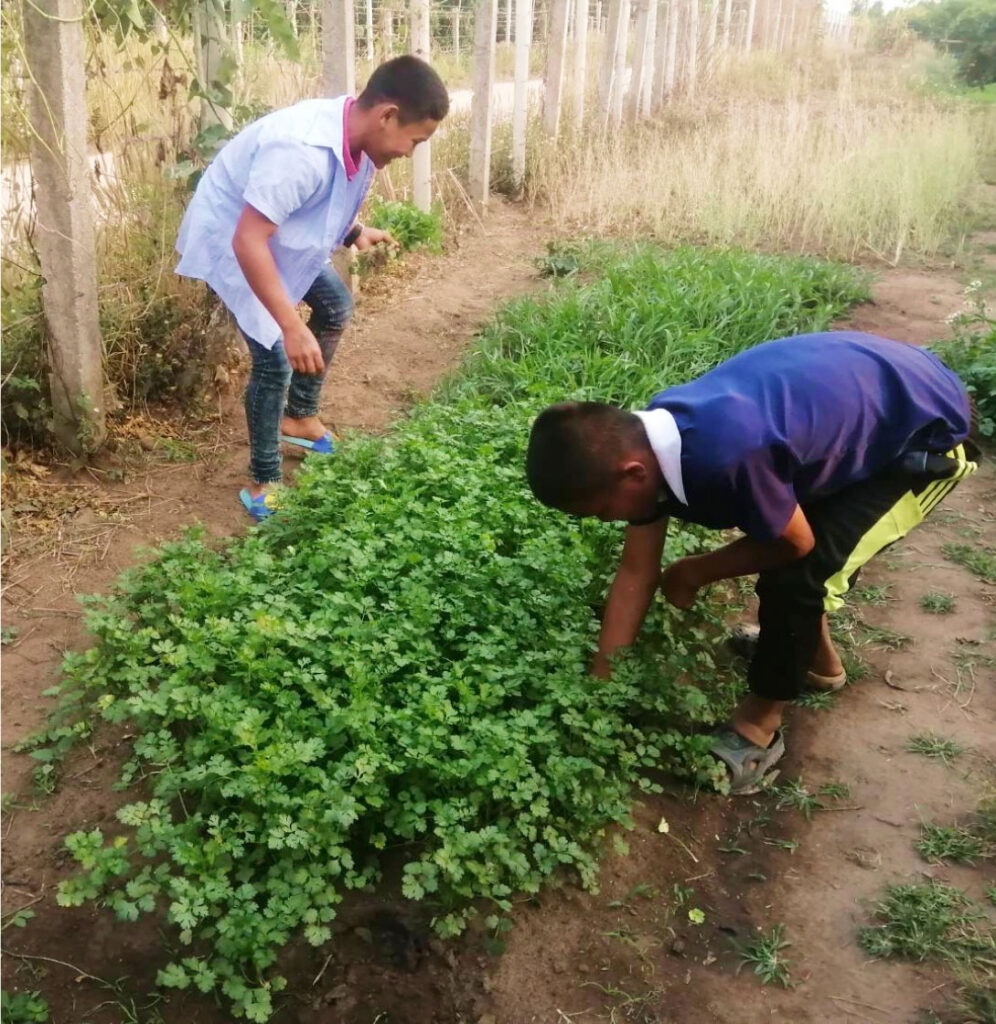
This is why we identify and support leaders on the ground who have earned the trust of their community and are already doing important work.
From running schools, to creating youth alliances to writing policy, our partners’ accomplishments are vast.
And their ideas are their own. It is our philosophy to trust and stand with them as they develop homegrown solutions to the challenges their communities are facing—not implement programs developed thousands of miles away by a group of people they’ve never met.
If you want results, there’s no substitute for the expertise of people on the ground.
“In Their Own Voices” Film Series
Partners Asia presents “In Their Own Voices” film series. Made by a local filmmaker, each documentary captures the inspiring journey of our local leaders. We invite you to witness the transformative power of community-driven initiatives.
The Mekong’s Guardian
“The Mekong’s Guardian” tells the story of how former schoolteacher Niwat Roykaew—better known by his nickname Kru (Teacher) Tee—mobilized the community of Chiang Khong in northern Thailand’s Chiang Rai Province to protect the mighty Mekong River. Through decades of locally led campaigns, research, and advocacy, the people of Chiang Khong were instrumental in halting a rapids-blasting project that threatened the biodiversity of the waterway, which serves as a lifeline for millions of people in Southeast Asia. This 11-minute documentary illustrates the importance of centering local leaders in decision-making and the inseparable connection between the environment and human rights.
From Pain to Power
“From Pain to Power” is a remarkable 20-minute documentary that will challenge the way you think about lasting change. It follows one of Partners Asia’s unstoppable partners, Matcha Phorn In, a woman who defies easy categorization: ethnic Lao, a lesbian, a feminist, and a human rights defender. Through her Sangsan Anakot Yawachon Foundation in Thailand, she is reimagining what is possible for women, children, and LGBTQI+ and indigenous people.
Watch Matcha’s story!
Among the Differences
“Among the Differences” takes you on a poignant exploration of the life’s work of Sukkriyah, affectionately known as Kru (Teacher) Ayu. The documentary highlights the resilience and determination of this remarkable woman, who is dedicated to ensuring that every child feels a sense of belonging and envisions a brighter future, even after overcoming unimaginable hardships.
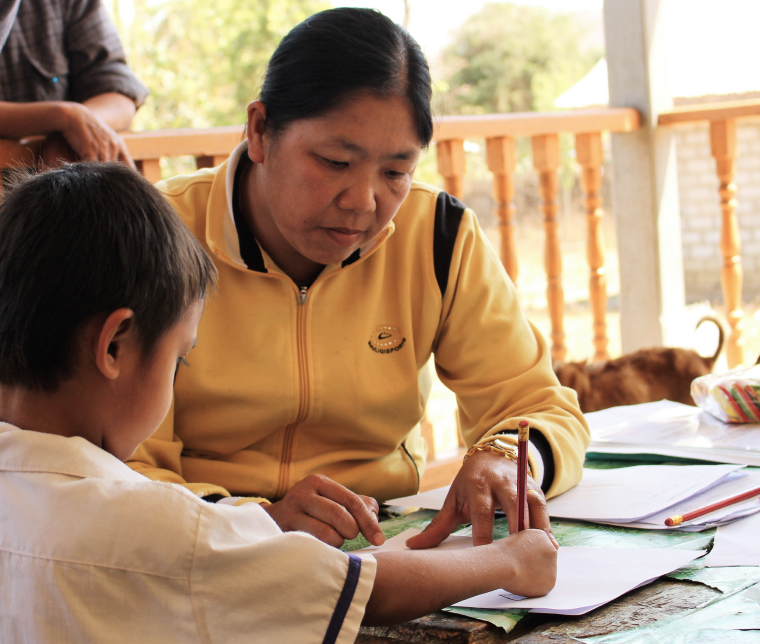
Education
In the communities where our partners live and work, the right to education is not guaranteed. That’s why they have spent years advocating for and facilitating access to schooling for children who, along with their parents, were forced by war, structural violence, or dire economic conditions to leave their homes and homelands.
In Thailand, for example, our partners are committed to ensuring that the children of some 4 million migrant workers can enroll in public schools or in a growing network of Migrant Learning Centers, established “for the people, by the people.” They have also worked tirelessly to bridge the gap between the two.
View More“Formal and migrant education systems should be connected, so that these children can continue their education and be recognized wherever they go,” the founder of one such school said.
We know that system change does not happen overnight, and it must be led by the people who understand it best. That’s why Partners Asia’s role has been to provide long-term, flexible funding for education—the type of support that builds trust and allows grassroots organizations the security to grow in line with the needs they identify on the ground. Through these relationships, we have witnessed our partners establish remarkable initiatives, such as:
- A respected pre-school serving a refugee community
- Academic programs equipping marginalized youth with the skills to both pursue higher education and to work for change
- Comprehensive teacher trainings for instructors and recent graduates, to bring creative, proven pedagogy to locally-led classrooms
- Professional working groups to advocate for inclusive policy making on education
When they have access to adequate resources, our partners have taught us how one school can expand into four, how a set of lesson plans can be transformed into a multilingual shared curriculum, and how a team of young teachers can confidently present policy recommendations to benefit the next generation.
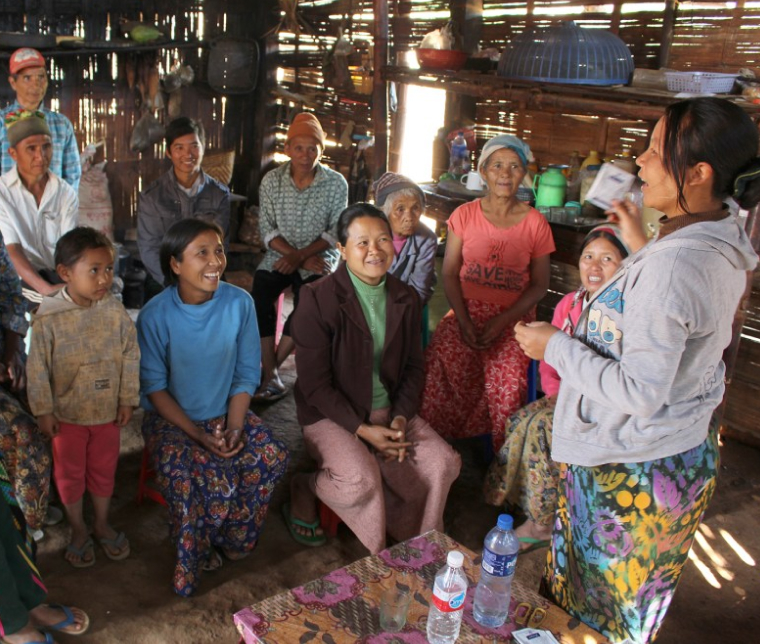
Leadership
In areas of protracted conflict, it can be incredibly difficult for youth to find a safe space where they can learn how to work for change in their communities.
Our veteran partners create that space in unlikely places—on borders and in villages—bringing together young leaders for trainings, collaboration, and mentorship opportunities. Their work starts from the belief that the next generation of local leaders is already among us: what they need are skills and opportunities to build from the groundwork laid by their predecessors and achieve new milestones.
View More“As conflict continues, and even escalates, it is very important that marginalized young people take on a leadership role in building peace and bringing justice,” says one of our longtime partners who runs a highly respected youth training program.
At Partners Asia, we do not appoint leaders to a context that is not our own in order to implement our vision. Instead, we see it as our responsibility to ensure that people who have been identified and chosen by their communities to lead are met with support and resources to sustain their work over the long term. We have stood with our partners as they:
- Train youth and hire alumni to give promising individuals a place to grow
- Offer practical support and solidarity to other grassroots leaders during times of crisis
- Strengthen community voices so that they reach international levels through advocacy
When you lead conscientiously, there are no shortcuts. That’s why we support programming whose leadership is defined by a legacy of empowering others, and motivated by a love of the people they serve.
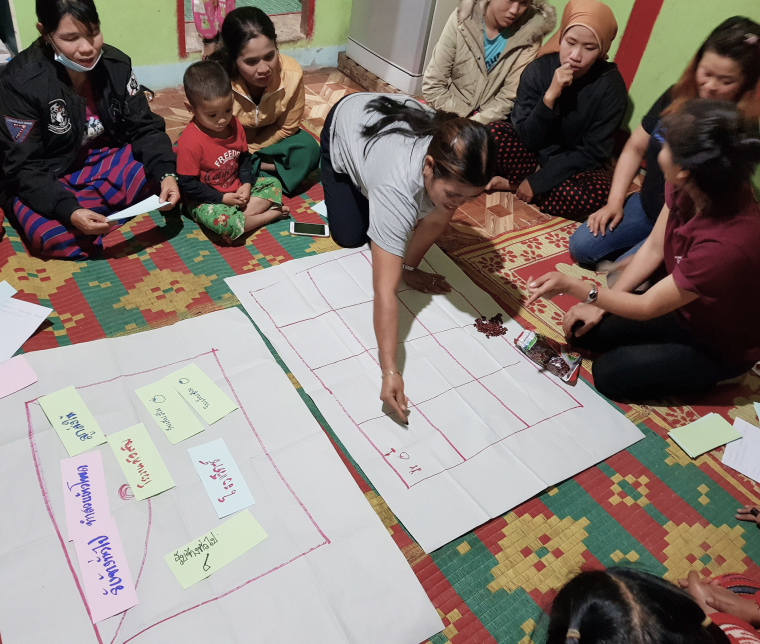
Community development
Too often, homegrown solutions to community-based problems are ignored by international donors. Instead, in the name of “development,” they have been known to implement strategies designed by people who have never lived in the conditions in question.
Local solutions form the core of our partners’ work, and it is what we support. “Development” is the opportunity for growth for all members of a community, in ways that are determined and prioritized by that community. It involves a range of projects and activities focused on cultural preservation, access to education and health services, conservation of the environment, livelihoods and rights protection.
View MoreOne partner explained how she and a small group of women initially invested in their community by starting with its youngest members, describing how an early education initiative that they started had brought together parents, volunteers, locals, and children for the benefit of everyone.
“We have gained a strong reputation in the community for preserving the culture of our people. We’ve seen children grow up and succeed,” she reflected.
Who is best situated to respond to all aspects of a crisis—to assess immediate needs, to confront the past, and to plan for the future? We believe that it is the people who are living through these circumstances. We commend our partners working in grassroots development for:
- Engaging youth from persecuted minorities in celebrations of their heritage and language
- Teaching community organizing techniques rooted in local practices
- Improving access to health care and nutrition
- Building homes and schools using natural, sustainable materials, and collective efforts
Those most affected by injustice must be at the forefront of the struggle for building a better future. Change that starts in and grows from communities is meaningful and lasting, and it is the kind of development we are proud to be part of.
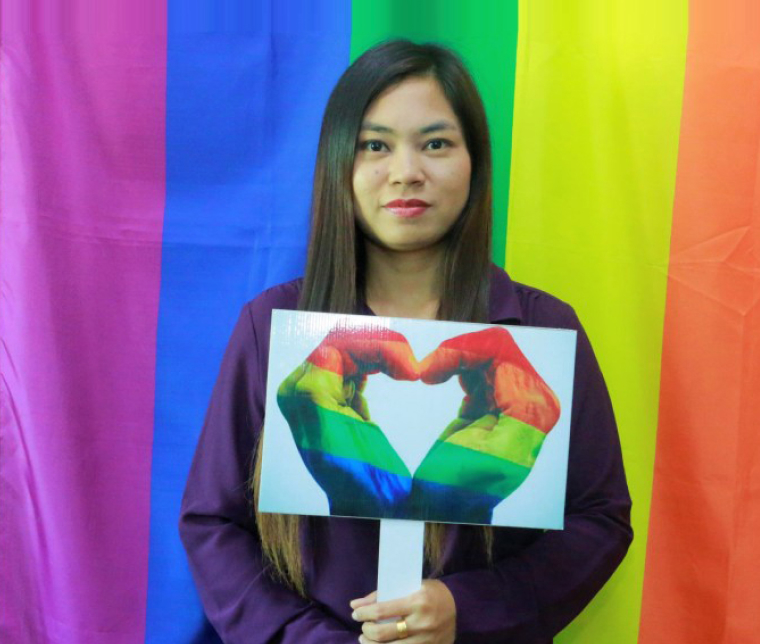
Gender equality
No one is free if more than half of us are not. Gender-based violence and discrimination are still prevalent in our communities and in those where our partners work. Together, we are committed to ensuring everyone has an equal opportunity to reach their full potential, regardless of gender identity or sexual orientation. With this in mind, our partners mentor emerging leaders, empowering them to take part in community organizing, movement building, and policymaking aimed at breaking down these barriers.
It’s not easy, nor is it always welcome. One partner, on northern Thailand’s border with Laos and Myanmar, works with children and youth from six different ethnic groups to safeguard their physical health and sexual wellbeing.
View More“Reproductive health is a part of everyone’s life, but it is still a sensitive topic here. In our district, we are the only organization working on this issue,” they told us.
Partners Asia’s approach to advancing gender equality is to support local organizations working with stateless, indigenous, and ethnic minority women and LGBTQI youth. Through them, we see how gender is connected to struggles for labor rights, access to healthcare, and citizenship in Southeast Asia.
Our partners have transformed this support into:
- The development of culturally sensitive trainings to address stigmas and communication barriers around taboo topics
- Activities contributing to a feminist movement rooted in local leadership
- Workshops on public speaking, research, and facilitation for youth from disenfranchised communities to confront intersectional issues of injustice
We are committed to standing in solidarity with and expanding our relationships with women- and LGBTQI-led community development initiatives that are leading the way to a more just and inclusive world.


